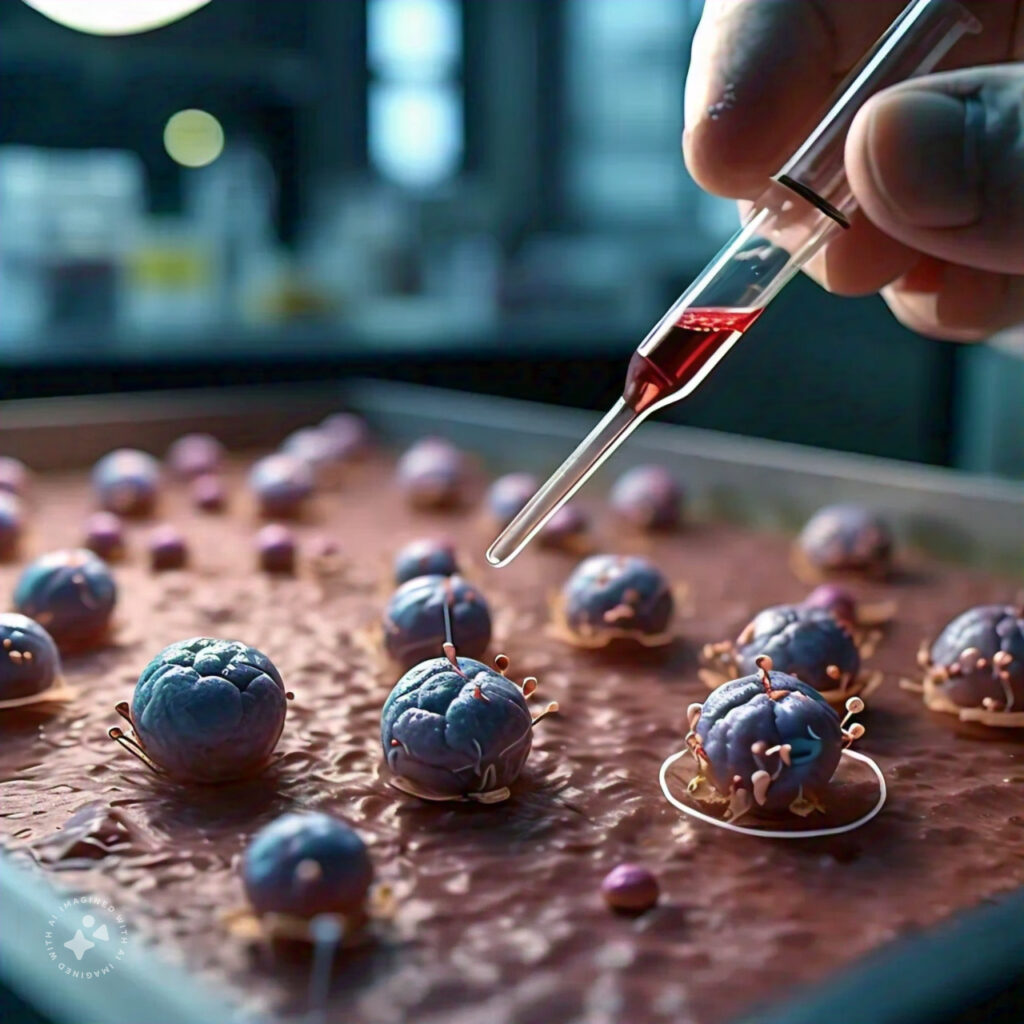Islets are a group of hormone producing cells that control blood glucose levels. Islet transplantation is considered a cure for type 1 diabetes (T1D). T1D is caused by the destruction of beta cells in islets by the body’s immune system. These beta cells produce insulin that decreases blood glucose. Islet transplantation is challenging due to limited organ donor availability. It gets further complicated by the associated risk of rejection. The discovery of stem cells called iPSCs (induced pluripotent stem cells) made it possible to make any organ or tissue in the lab and transplant them into the patients. Easier said than done, the stem cell-based transplantation is still at its inception stage.
Since type 2 diabetes (T2D) is caused by insulin resistance followed by decreased insulin production, most of the islet transplants are performed for T1D patients. However, approximately 30% of T2D patients are insulin-dependent. Such T2D patients could be cured by islet transplantation. However, the transplantation preference is given to T1D patients, as that is their only treatment option. In a recent article1 in Nature Discovery, the authors transplanted islets into a 59-year-old type 2, insulin-dependent diabetic patient. The investigators made the stem cells using the patient’s blood and formed islets in the lab. Thus, the patient did not need any immunosuppressive drugs. He developed a better insulin response and the external insulin injection was withdrawn after week 11 of transplantation. The other anti-diabetic drugs were also withdrawn after about a year. These results are encouraging but since it is just one patient’s data, more patients are needed to determine the efficacy of this therapy.

Image Source: Vinny Negi
Where does the islet transplantation for T1D stand?
Compared to T2D, islet transplantation for T1D patients is currently under phase 1/2 of clinical trials2,3. In these trials, the investigators used stem cells from a single donor. Then they programmed these cells into immature islets that became mature after transplantation into humans. The same islets were used for transplantation in all the patients. And immunosuppressive drugs were also given to prevent rejection. These cells were found to be safe in humans but failed to show any clinical benefit. After transplantation, the patients were still dependent on external insulin and had many side effects due to the immunosuppressive drugs. In another extended study4, the investigators transplanted more islets in 10 patients. Only 3 out of 10 patients showed better glucose control. They were still dependent on external insulin, though the dose was reduced.
To summarize, the following are the key differences between islet transplantation for T1D and T2D:
| T1D | T2D | |
| Study conducted by | A group of investigators from Shanghai | Vertex Pharmaceutical |
| Number of patients | 10-15 | 1 |
| Transplanted cells | Immature islets (pancreatic endoderm) | Mature islets (endoderm stem cell-derived islets) |
| Encapsulation | Non-immunological encapsulation, allowing blood vessel formation | No encapsulation |
| Implantation site | Under the skin (forearm and abdomen) | Into liver vein (hepatic portal vein) |
| Follow up period | 1 year | 2.23 years (116 weeks) |
| Disease targeted | Type 1 diabetes | Type 2 diabetes |
| Insulin dependency after transplantation | Yes, only the dose was reduced | No, withdrawn by week 11 |
| Other drugs | N/A | Anti-diabetic medications were discontinued after a year |
What is next?
These two methods of transplantation have their pros and cons. The patient-specific islet transplantation is an expensive but effective therapy. On the other hand, transplanting the same islets to every patient is cost-effective but does not show better glucose control. To make islet transplantation feasible it should be affordable. Efforts should be made to determine methods that can reduce the cost of the treatment and make it available to everyone.
Dr. Vinny Negi, Ph.D.
Sources
1. Wu J, Li T, Guo M, et al. Treating a type 2 diabetic patient with impaired pancreatic islet function by personalized endoderm stem cell-derived islet tissue. Cell Discov. Apr 30 2024;10(1):45. doi:10.1038/s41421-024-00662-3.
2. Ramzy A, Thompson DM, Ward-Hartstonge KA, et al. Implanted pluripotent stem-cell-derived pancreatic endoderm cells secrete glucose-responsive C-peptide in patients with type 1 diabetes. Cell Stem Cell. Dec 2 2021;28(12):2047-2061 e5. doi:10.1016/j.stem.2021.10.003
3. Shapiro AMJ, Thompson D, Donner TW, et al. Insulin expression and C-peptide in type 1 diabetes subjects implanted with stem cell-derived pancreatic endoderm cells in an encapsulation device. Cell Rep Med. Dec 21 2021;2(12):100466. doi:10.1016/j.xcrm.2021.100466
4. Keymeulen B, De Groot K, Jacobs-Tulleneers-Thevissen D, et al. Encapsulated stem cell-derived beta cells exert glucose control in patients with type 1 diabetes. Nat Biotechnol. Nov 27 2023;doi:10.1038/s41587-023-02055-5
Disclaimer
The editors take care to share authentic information. In case of any discrepancies please write to newsletter@medness.org
The sponsors do not have any influence on the nature or kind of the news/analysis reported in MedNess. The views and opinions expressed in this article are those of the authors and do not necessarily reflect the official policy or position of MedNess. Examples of analysis performed within this article are only examples. They should not be utilized in real-world analytic products as they are based only on very limited and dated open-source information. Assumptions made within the analysis are not reflective of the position of anyone volunteering or working for MedNess. This blog is strictly for news and information. It does not provide medical advice, diagnosis or treatment nor investment suggestions. This content is not intended to be a substitute for professional medical advice, diagnosis, or treatment. Always seek the advice of your physician or another qualified health provider with any questions you may have regarding a medical condition. Never disregard professional medical advice or delay in seeking it because of something you have read on this website.
MedNess is a part of STEMPeers® which is a 501(c)(3) organization registered in PA as PhD Career Support Group. The organization helps create a growing network of STEM scientists that is involved in peer-to-peer mentoring and support.



